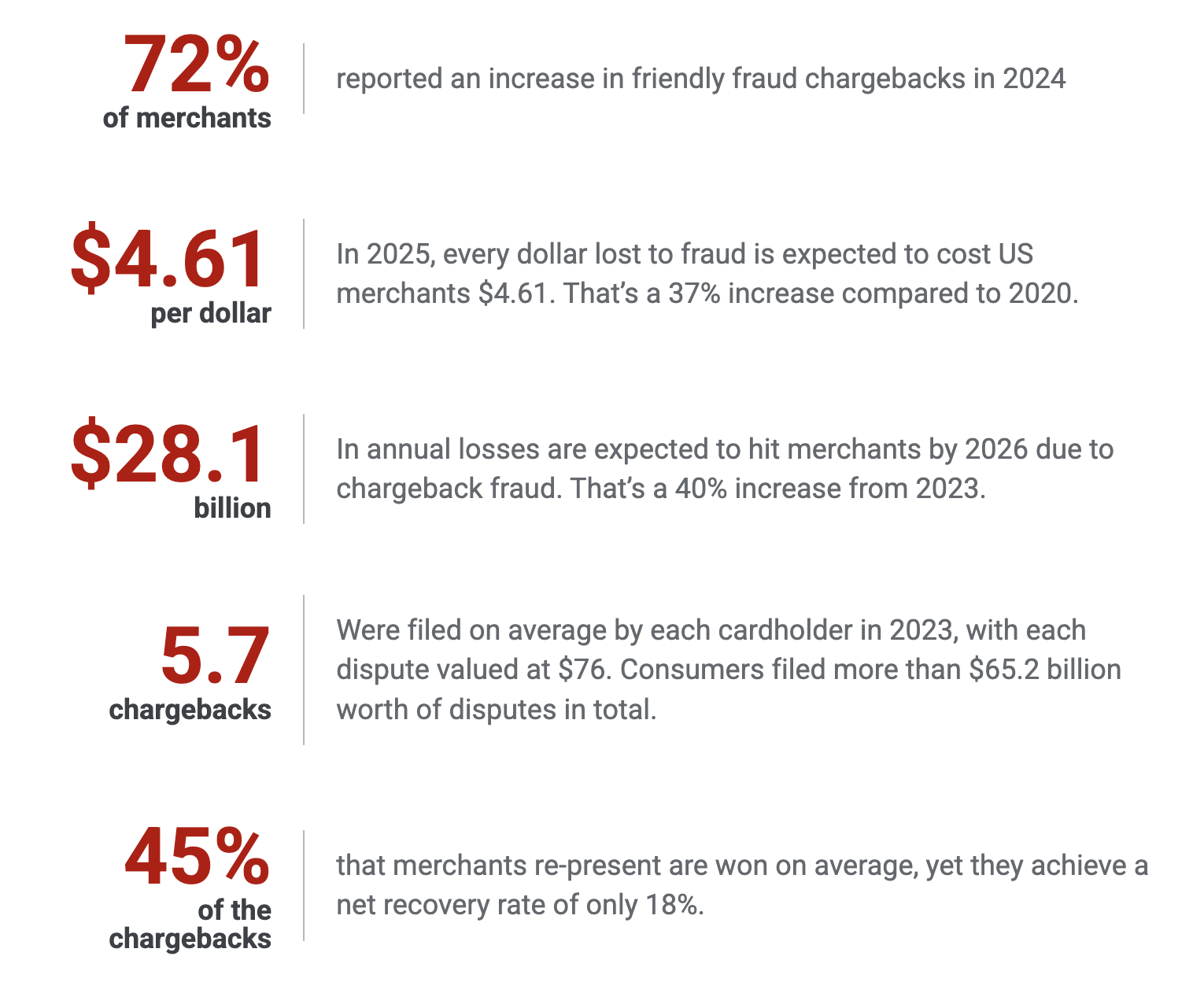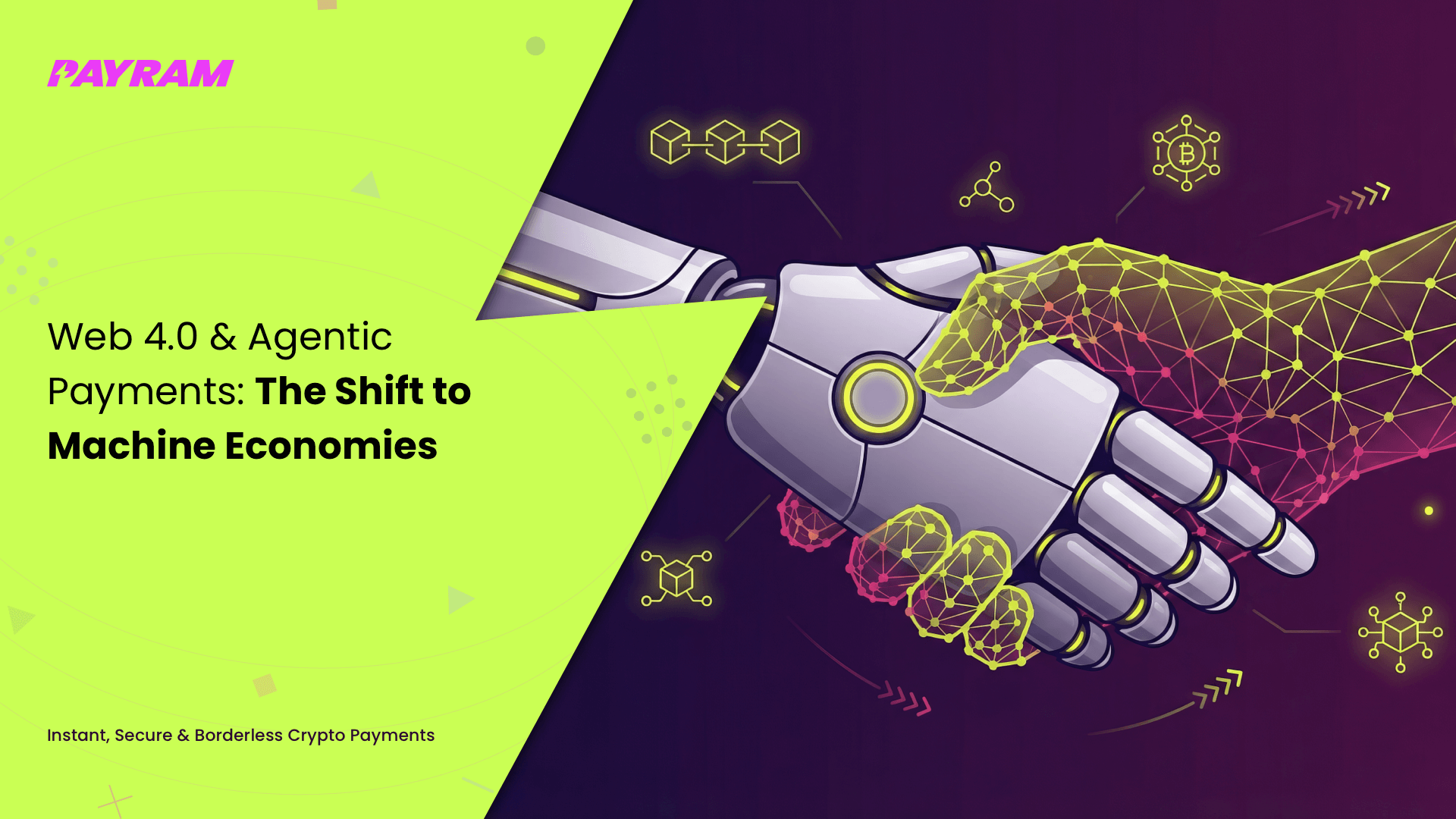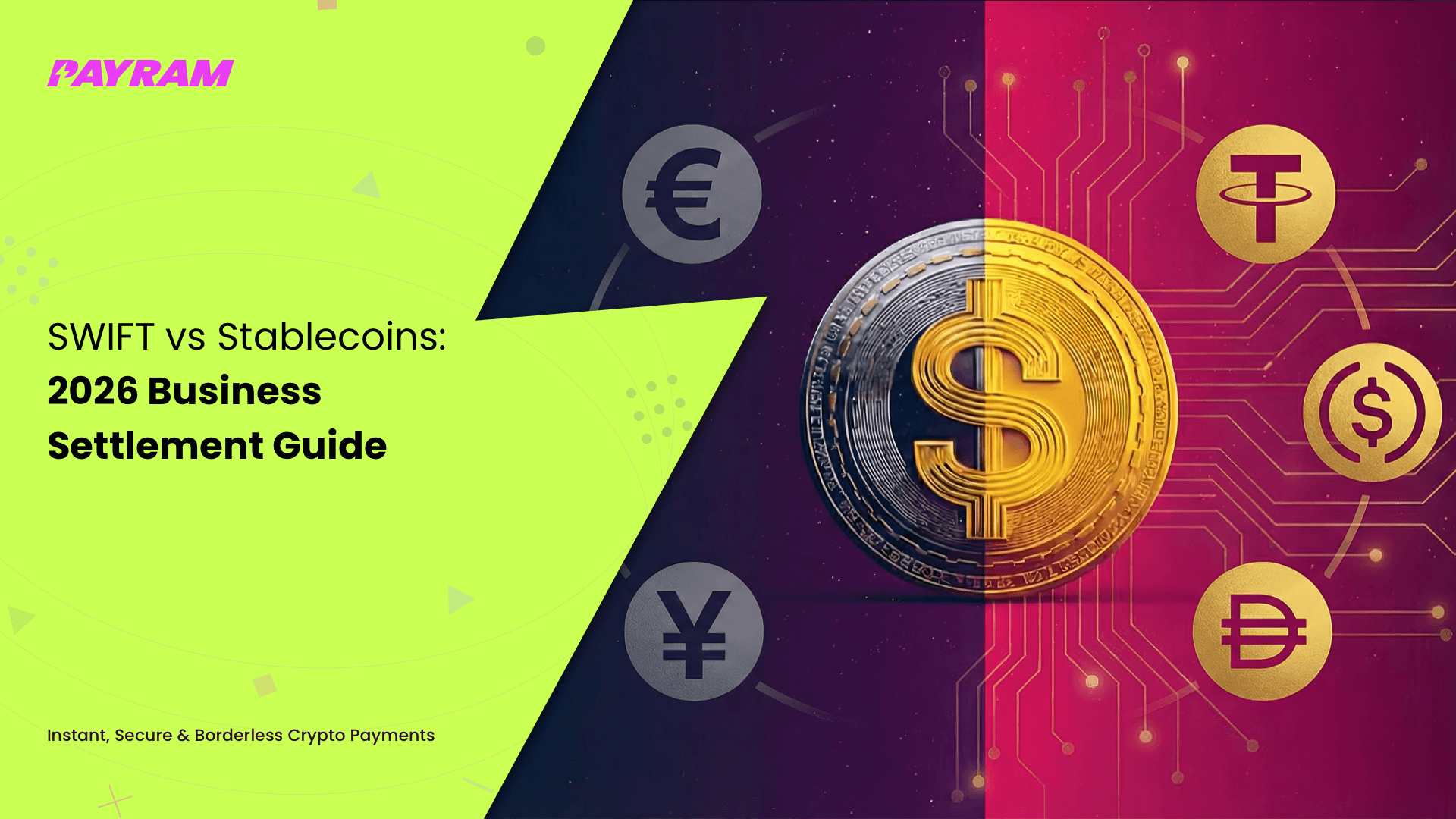The Best Crypto Payment Gateway for iGaming: A 2025 Operator's Guide
This 2025 guide outlines why iGaming operators must adopt crypto payment gateways to overcome traditional payment bottlenecks and capture massive market growth.
The global iGaming industry is in the midst of an explosion. Valued at USD 95.5 billion in 2024, the industry is projected to expand at a staggering compound annual growth rate (CAGR) of 11.9% from 2025 to 2030. This growth is creating unprecedented opportunities, particularly in the United States, which saw iGaming gross a record $1.98 billion in Q1 2024 alone. But this rapid expansion comes with a multi-billion dollar problem: the payment rails that power the industry are failing. Operators are facing immense iGaming payment challenges, from player friction to high operational costs. This guide explains why legacy payment methods are a bottleneck to growth and details how a crypto payment gateway for iGaming is no longer a niche advantage but a competitive necessity for survival and success.

The Multi-Billion Dollar Problem: Why Traditional iGaming Payments Are Failing
Traditional iGaming payment methods are failing operators due to slow settlement times, high fees, frequent declines, and costly chargebacks.
The global iGaming market has been operating on a financial infrastructure that was never designed for its unique demands. Conventional payment methods like credit cards, bank transfers, and traditional e-wallets create significant operational friction for operators and players alike.

Bank transfers, while common, force players to endure 3-5 business day waiting periods for withdrawals, destroying player satisfaction. Credit card transactions carry substantial fees, typically 2.9% plus a fixed fee per transaction, which cuts directly into an operator's margins. Worse, these transactions are plagued by high decline rates from issuing banks that categorically flag "gambling" as a high-risk industry. In fact, research shows that nearly 1 in 5 online transactions are abandoned simply because the checkout process takes too long.
As Marc Cregan, senior director of gaming at Worldpay, noted, "As a former merchant... I witness firsthand the intricate dance between innovation and operational efficiency... marginal improvements in authorization rates and cost reductions can translate into significant revenue uplift."
Furthermore, these standard payment methods expose operators to the immense and costly problem of "friendly fraud." Players can dispute a legitimate deposit, initiating a fraudulent chargeback that is costly, time-consuming, and almost always results in a loss for the operator.
Solving the Core Payment Challenges Plaguing Operators
Crypto-based payment gateways directly solve the most expensive operator pain points, including chargebacks, card declines, and high-fee processing.
While the original "crypto advantage" focused on speed and transparency, the modern crypto payment gateway for iGaming is an enterprise-grade solution engineered to solve specific, high-cost operator pain points. The scale of this problem is massive, as friendly fraud now accounts for over 70% of all chargebacks, costing merchants billions.
This shift is revolutionary.
As Rick Falkvinge, Founder of the Swedish Pirate Party, famously stated, "Bitcoin will do to banks what email did to the postal industry." For iGaming operators, this means a fundamental change in how they manage revenue.
How Crypto Payments Eliminate iGaming Chargebacks
The immutability of blockchain transactions provides operators with a definitive solution to "friendly fraud" and costly iGaming chargebacks.
The most significant financial drain for many operators is the chargeback. Because crypto transactions are recorded on an immutable, decentralized ledger, they are final. Once a deposit is confirmed on the blockchain, it cannot be reversed by the player. This one feature allows operators to solve the "friendly fraud" problem entirely, saving millions in lost revenue, dispute fees, and administrative costs.
Overcoming Costly Declines: The Credit Card Declined Gambling Site Problem
Crypto payment rails bypass the restrictive, jurisdiction-dependent rules of acquiring banks, converting players who would otherwise be lost to a declined credit card transaction.
Every operator knows the pain of the credit card declined gambling site error. It's a primary source of player drop-off and lost customer acquisition cost. Crypto payments bypass this entire legacy system, a common reason high-risk merchants get banned from platforms like Stripe. A transaction is a simple, peer-to-peer data transfer that isn't subject to the arbitrary and restrictive rules of an acquiring bank. This results in a near-100% transaction success rate, higher player conversion, and true global market access.
Escaping Rolling Reserves and High Fees with Low Fee Crypto Processing
Operators can escape the 5-10% rolling reserves and high fees of "high-risk" merchant accounts by switching to transparent, low-fee crypto processing.
Traditional payment processors classify iGaming as a "high-risk" industry. This forces operators into predatory agreements that include high monthly fees and "rolling reserves" that can lock up 5-10% of an operator's revenue for months. Low fee crypto processing fundamentally changes this dynamic. Instead of opaque contracts, operators get a flat, transparent transaction fee—often under 1%—which frees up capital, dramatically improves cash flow, and boosts profitability.
The 'Crypto Advantage' Unlocked: Speed, Transparency, and Global Reach
Crypto's core advantages of speed and transparency are now substantiated by its unique ability to provide truly global market access, unlocking massive new revenue regions.
The original pillars of the crypto advantage remain more relevant than ever. The global cryptocurrency market reached $2 trillion by the end of 2024, proving it is a mainstream financial rail. This adoption is supercharging the benefits for operators.
As Michael Chang of Gaming Investment Partners highlights, the data is clear: "Crypto integration in iGaming shows 40% higher profit margins compared to traditional-only operators, lower transaction costs and increased betting volumes drive this difference."
The 'Speed' Advantage: From 5 Days to 5 Seconds
Crypto payments replace 3-5 day bank withdrawals with near-instant payouts, a critical factor in building player trust and long-term retention.
In an industry built on instant gratification, forcing a winning player to wait 3-5 business days for their payout is a recipe for poor retention. Cryptocurrency transactions are settled in minutes, sometimes seconds. This ability to offer instant deposits for immediate gameplay and near-instant withdrawals is the single most powerful tool an operator has for building unparalleled player retention and loyalty.
The 'Transparency' Advantage: Provably Fair Gaming & Smart Contracts
On-chain verification and smart contracts offer a new level of provably fair gaming and automated payouts, which builds player trust and reduces administrative overhead.
Blockchain technology is, at its core, a ledger of truth. This transparency can be leveraged to create "provably fair" gaming systems where players can independently verify the fairness of a game's outcome. Beyond trust, this technology enables automation. Operators can use smart contracts to manage and automatically execute payouts for complex jackpots or tournament winnings, reducing administrative overhead and eliminating human error.
New Market Focus: Capturing the U.S. and European Explosions
Crypto's borderless nature is the ideal payment solution for navigating the fragmented U.S. market (projected at $30B by 2027) and the multi-currency European market (41.16% global share).
Crypto's borderless nature is a perfect match for the industry's two largest and most complex markets. In the U.S., which is projected to exceed $30 billion by 2027 1, operators face a complex patchwork of state-by-state payment regulations. Crypto bypasses this fragmentation. In Europe, which remains the largest market with 41.16% of the market share in 2024, operators must juggle dozens of currencies, all while navigating the new MiCA regulation framework.
The Stablecoin Solution: The Key to Operator Adoption & Global Reach
Stablecoins are the enterprise-ready solution for iGaming, offering the speed and security of crypto while eliminating the price volatility that operators fear.
The primary friction point for B2B adoption of crypto has always been volatility. No business can run its treasury on an asset that swings 10% in a day. This is where stablecoins enter. They represent the single most important evolution for enterprise crypto payments.
The scale is already immense, as stablecoin circulation... facilitates... about $30 billion of transactions daily.
As G&M News noted in a 2025 report, "Operators that treat stablecoins as a strategic payments option, not a marketing gimmick, stand to gain business advantage and broader market access."
What is a Stablecoin? Removing Volatility from the Equation
A stablecoin is a digital currency, like a digital dollar, that lives on a blockchain but is pegged 1:1 to a fiat currency, removing price volatility.
For anyone searching for the stable coin meaning, the concept is simple: a stablecoin is a digital dollar. It is a crypto token that lives on a blockchain, giving it all the speed, security, and global reach of crypto, but its value is pegged 1:1 to a reserve asset like the U.S. dollar. This gives operators the best of both worlds. They can accept digital payments without any exposure to the price volatility of assets like Bitcoin.
Why USD-Pegged Stablecoins (USDT, USDC) are the iGaming Standard
USD-pegged stablecoins like USDT and USDC are the global standard for on-chain settlement, simplifying treasury management and player bankrolls.
A usd stablecoin, such as USDT or USDC, is the dominant standard for digital settlement worldwide. For iGaming operators, this simplifies everything. Bankrolls can be denominated in a currency everyone understands, and treasury management becomes as simple as managing a digital USD account.
Tapping the 41% European Market: The Rise of the Euro Stablecoin
With Europe holding over 41% of the iGaming market, a euro stablecoin is an essential tool for operators to accept and settle payments in EUR on-chain, avoiding costly conversion fees.
Connecting the data, the rise of the euro stablecoin (or stablecoin euro) is a direct response to market demand. With Europe commanding over 41% of the iGaming market 2, operators in that region must transact in EUR. A euro stablecoin allows them to accept deposits and process withdrawals in their native currency on-chain, completely avoiding the costly conversion fees of EUR -> USD -> EUR that plague traditional international payments.
Integrating a Stablecoin Payment Gateway
A stablecoin payment gateway is the essential software that allows an iGaming platform to easily accept, manage, and settle digital dollar and euro transactions.
A stablecoin payment gateway is the bridge that connects the concept to the solution. It is the software layer that integrates into an iGaming platform, allowing operators to easily accept, track, and manage stablecoin payments from players without needing to become blockchain experts themselves.
The Operator's Choice: Self-Hosted vs. Custodial Crypto Gateways
iGaming operators must choose between a self-hosted gateway for maximum control or a custodial (API) gateway for simplicity and speed-to-market.
Once an operator decides to adopt crypto, the final choice is how to implement it. This decision is driven by high-intent search queries and is the most critical strategic choice an operator will make. Globally, more than 420 million people worldwide use cryptocurrency wallets in 2024, so the player base is ready.
The choice comes down to control versus convenience. As one Illumination Wealth report puts it, "Many crypto investors will start with a custodial model and then shift to self-custody once they have built up more significant assets and understand more about how the technology works." Operators face the same decision.
The Self Hosted Crypto Payment Gateway: Ultimate Control
A self hosted crypto payment gateway provides ultimate control, lower long-term fees, and enhanced privacy, as the operator runs the software on their own servers.
The self hosted crypto payment gateway model is for operators who prioritize control and security above all else. With this solution, the payment software runs on the operator's own servers. This means they have full control over their funds, are not exposed to third-party risk, and can benefit from lower long-term fees. This is the philosophy behind PayRam's self-hosted solution, which offers a 0% processing fee and can be set up quickly through a streamlined UI, not just a command line. The trade-off is that this model requires internal technical resources to manage the security and maintenance.
The Custodial Crypto Gateway: Simplicity and Speed-to-Market
A custodial crypto gateway offers fast API-based integration and outsourced compliance, making it the simple, low-maintenance choice for operators.
A custodial crypto gateway, or API-based solution, is the simple, fast-to-market option. In this model, a third-party provider manages the complex wallet infrastructure and payment processing. Operators integrate via a simple API. The primary benefits are rapid integration (days, not months), outsourced security and maintenance, and full technical support. PayRam's API solution provides this simplicity, while also offering advanced services (for a service fee) like global On-Ramp and Off-Ramp services to manage liquidity.
The Bottom-Funnel Decision: Compliant USD Settlement
The most critical feature for operators is compliant USD settlement, which allows them to accept global crypto payments but receive fiat currency directly in their corporate bank account.
For most operators, this is the single most important, decision-stage feature. The best gateways don't just accept crypto. They settle it. Compliant USD settlement (or EUR settlement) is the "last mile" solution that bridges the digital and traditional financial worlds. It allows an operator to accept crypto deposits from players globally but receive stable, fiat currency (like USD) directly into their corporate bank account, solving the final, critical piece of the treasury and compliance puzzle.
Conclusion: How to Choose the Best Crypto Payment Gateway for iGaming
Choosing the best crypto payment gateway for iGaming means finding a solution that eliminates chargebacks, embraces stablecoins, and offers the right hosting model (self hosted or custodial) for your business.
The iGaming industry is moving too fast to be held back by 20th-century payment infrastructure. The best crypto payment gateway for iGaming is no longer a simple tool for accepting Bitcoin. It is a sophisticated, enterprise-grade solution. The right choice for your operation is the one that solves your most expensive problems. It must eliminate chargebacks, embrace the stability of stablecoins, and offer the implementation model—self hosted or custodial—that matches your technical resources and business goals.
Frequently Asked Questions (FAQ)
What is the main advantage of crypto payments for iGaming?
The main advantages are speed (transactions settle in minutes, not days), cost reduction (processing fees are typically under 1% vs. 3%+ for credit cards), and security (blockchain payments eliminate the risk of "friendly fraud" chargebacks).
How do crypto payments eliminate chargebacks?
Crypto transactions are "push" payments, meaning the player must authorize and send the funds from their wallet. Once confirmed on the blockchain, the transaction is irreversible. This makes "friendly fraud"—where a player disputes a legitimate deposit—impossible, saving operators millions in lost revenue and dispute fees.
What is a stablecoin and why should my casino use it?
A stablecoin is a type of cryptocurrency whose value is pegged 1:1 to a fiat currency, like the U.S. dollar (e.g., USDT, USDC) or the Euro. Your casino should use them because they provide all the benefits of crypto (speed, low fees, no chargebacks) without the price volatility of assets like Bitcoin. You can accept a $100 deposit and know it will be worth $100 an hour later.
What's the difference between a self-hosted and a custodial gateway?
A self-hosted (or non-custodial) gateway means you run the payment software on your own servers. You have 100% control over your funds, pay no processing fees, and are responsible for your own security. A custodial gateway is managed by a third party (like PayRam via API). It's faster to integrate and they handle security, but you pay a service fee and the provider technically holds your funds.
Is a self-hosted gateway too technical for my team?
It used to be, but modern solutions are changing this. While traditional self-hosted options require command-line expertise, PayRam's self-hosted gateway is built with a streamlined UI-based setup. This allows operators to get the benefits of 0% processing fees and full control without needing a dedicated blockchain engineering team.
What does "compliant USD settlement" mean?
This is a crucial "off-ramp" service. It means you can accept crypto payments (like Bitcoin or stablecoins) from your players globally, and the payment gateway will automatically convert those funds and deposit fiat currency (like USD or EUR) directly into your corporate bank account, solving your treasury and accounting challenges.
Can I accept crypto but get paid in fiat (like USD or EUR)?
Yes. This is a core feature of a good custodial gateway or any gateway that offers Off-Ramp services. The system instantly converts the incoming crypto to your currency of choice, so your business can benefit from crypto's advantages without ever having to hold volatile assets on your balance sheet.
What are the fees for using a crypto payment gateway?
Fees vary by model. Self-hosted gateways like PayRam's have a 0% processing fee (you only pay the network's small "gas" fee for transactions). Custodial (API) gateways charge a service fee, which is typically a small percentage of the transaction, but this fee buys you managed infrastructure, security, and support.
How do I handle the new MiCA regulations for crypto in Europe?
The Markets in Crypto-Assets (MiCA) regulation creates a unified legal framework for crypto in the EU. The easiest way to ensure compliance is to partner with a payment provider that has built-in compliance tools. This includes handling KYC/AML requirements for on-ramps and off-ramps and ensuring any stablecoins you accept (especially euro stablecoins) are from regulated issuers.
What is an On-Ramp / Off-Ramp service?
An On-Ramp is a service that allows players to easily buy crypto using their credit card or bank account. An Off-Ramp is the reverse, allowing you or the player to sell crypto and receive traditional fiat currency (like USD) in a bank account. These services are the critical bridges between the traditional financial system and the digital asset economy.
Take Control of Your Payments
Stop leaving revenue on the table. The future of iGaming is built on instant, secure, and global payments. PayRam offers the ultimate flexibility with both 0% processing fee self-hosted gateways and robust custodial API solutions complete with global on-ramps.
Click to discover the right architecture for your operation and make payment friction a thing of the past.


.svg)







%20Wero%20vs%20Visa%20%26%20Mastercard%20PayRam.png)


.svg)